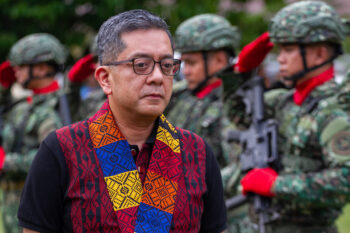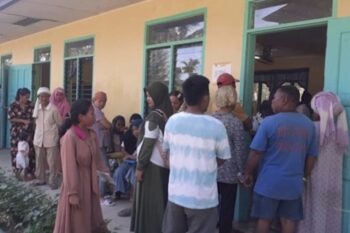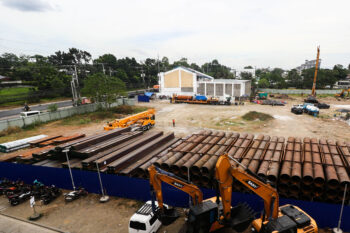III. What Will Work?
GENERAL SANTOS CITY (MindaNews/17 May)– As defined in Part I, “transition” specifically refers to the period of establishing the government institutions, mechanism and modalities for the entrenchment of the Bangsamoro as provided in the FAB. The period begins “from the abolition of the Autonomous Region in Muslim Mindanao” and ends with “the inauguration of Bangsamoro on or before June 30, 2016 under the ministerial government formed by the first Bangsamoro Legislative Assembly”.
Bangsamoro must have the transition that will work – meaning one that is not merely transferring Muslim autonomy from the ARMM to Bangsamoro but preparing to make Bangsamoro the political entity that will solve the Bangsamoro Problem.
Such transition calls for, first, a sound organic law or charter – the Basic Bangsamoro Law; second, the time and resources necessary to enable the Bangsamoro Transition Authority to establish sound governmental institutions and to make their mechanics and modalities gel; and, third, the proper orientation of the Moro leaders for leadership in government and in the civil service called for under the new order.
Sound Organic Law
As a historical landmark in the Government-Moro Islamic Liberation Front 16-year peace negotiation, the FAB is the agreement on “How to Solve the Bangsamoro Problem”, the only talking point MILF proposed on February 25, 1997. Basically, most of the FAB provisions are from the consensuses in the MOA-AD as reframed in MILF Draft Agreement 2011; significantly, they reflect the Third Part, Paragraphs 1 to 9 of the 1976 Tripoli Agreement, particularly 5, 6 and 9.
Basic considerations for the drafting and enactment of the BBL are provided in the GRP-MILF Decision Points on Principles (DPP), signed April 24, 2012 — finalized in the FAB, initialed on October 12 and signed on October 15, 2012. Provisions on transition are spelled out specifically in Executive Order No. 120 issued on December 17, 2012 and in Annex on Transitional Arrangements and Modalities (ATAM), signed on February 27, 2013, one of the four annexes which are integral parts of the FAB.
The basic considerations are:
First: When the Parties agreed that (1) the status quo is unacceptable [FAB, I.1; DPP, 2]; (2) the Bangsamoro government is ministerial in form to be elected under a suitable electoral system [FAB, I.2; DPP, 4]; (3) the relation between Bangsamoro and Central Government is asymmetric [FAB, 1.4]; and, (4) there shall be power- and wealth-sharing between them [FAB, III, IV with Annexes; DPP, 6 and 7], they defined the autonomy that Bangsamoro will have. The four provisions are complementary.
Second: (5) The recognition of the Bangsamoro (Moro people) identity [FAB, I.6; DPP, 1]; (6) the territory and constituent units of Bangsamoro [FAB, I.3, V]; (7) Basic rights [FAB, VI; DPP, 10] notably the “legitimate grievances of the Bangsamoro people arising from any unjust dispossession” [FAB, VI.2]; (8) normalization [FAB, VIII with Annex].
Third: (9) The Basic Law and its four features [FAB, II.1 to 4].
There are potential conflicts.
Incidentally, however, the agreement in principles may cause some frictions during the drafting and enacting of the Basic Bangsamoro Law. That “The Bangsamoro shall be governed by a Basic Law [FAB, II.1)” is a given; and so is the drafting and ratification of the Basic Law (FAB, II.4]. But how the agreements under the “First” and “Second” basic considerations itemized above will be drafted into the Basic Law [FAB, II. 3 and 4] and enacted by the Congress is the question.
The four “first basic considerations” are the foundation of Bangsamoro as a political entity; of these four, “unacceptable status quo” is the defining point. Hence, how the Parties agree on its exact meaning is most essential and definitive.
From the statements of the Parties, what is unacceptable to MILF is the unitary system of government in the Philippines from which they are opting out since, as they perceive it as one of the roots of the injustices historically suffered by the Moros, they believe it will not work to put Bangsamoro under that system and is advisable to adopt for it another system. To Government on the other hand, the status quo refers to the ARMM as “the failed experiment” that must be changed as the foundation of Bangsamoro.
The four “second basic consideration” ask for what the MILF believes the Moros are entitled to. However, these were virtually the same entitlements that caused the MOA-AD controversy – deemed by some Christian leaders as conflicting with the rights of the Christian majority in the area. Like the “unacceptable status quo” the “entitlement of the Moros to certain rights” is potentially contentious.
Opting out of the unitary system, MILF proposed and Government agreed that the Moro political entity finally named in the FAB as the Bangsamoro shall be ministerial in form with asymmetric relation to the Central Government. Power-sharing and wealth-sharing are necessary to the ministerial form of government and to its asymmetric relation with the Central Government.
This has alarmed some national leaders and thinkers particularly the constitutionalists since they believe this will need the amendment of the Constitution. But the Philippine peace panel members especially its first chairman, now Justice Mario Victor “Marvic” Leonen, allayed the fears assuring all that the agreement is well within the Constitution – the government will not sign an agreement contrary to the Constitution.
At this point, it can only be asked: “In agreeing, does Government think and believe that the asymmetric Bangsamoro ministerial government can be established under the unitary system within Article X, Sections 15 to 21 of the 1987 Philippine Constitution with minimal amendments if necessary and that reforming the ARMM in partnership with MILF will suffice to solve the Bangsamoro Problem?”
Was this what Leonen meant when he talked about “thinking outside the box” within the Constitution? Is the Aquino III government riding two bancas — accommodating some patently “unconstitutional” demands of MILF without departing from the Constitution and the unitary system of government like the governments under past presidents?
(To be continued: Past and Present)
(“Comment” is Mr. Patricio P. Diaz’ column for MindaViews, the opinion section of MindaNews. The Titus Brandsma Media Awards honored Mr. Diaz with a “Lifetime Achievement Award” for his “commitment to education and public information to Mindanawons as Journalist, Educator and Peace Advocate.” You can reach him at patpdiazgsc@yahoo.com.)







